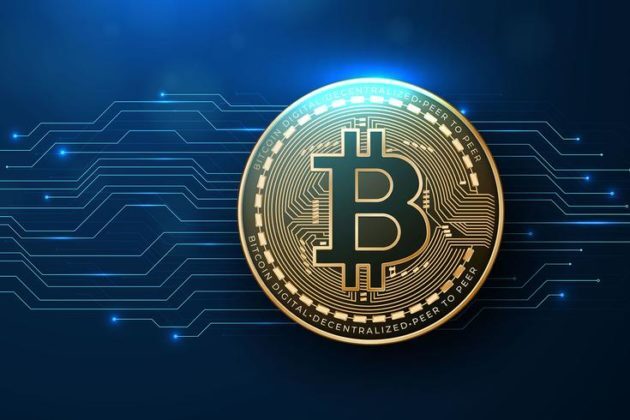3 Things to Consider Before Investing in Bitcoin
Bitcoin is on a lot of people’s minds right now. As with anything novel, you will encounter many views on Bitcoin and arguments for and.


Bitcoin is on a lot of people’s minds right now. As with anything novel, you will encounter many views on Bitcoin and arguments for and against investing in Bitcoin. Here we present to you 3 things to consider before investing in Bitcoin.
In summary, before investing in Bitcoin, you should consider the following:
- Your understanding of what makes Bitcoin special in itself, outside the context of the financial markets.
- Your awareness of how the Bitcoin market works in general.
- Your investing goals and resources for investing in Bitcoin.
Let’s get down to the details!
1. Do you know what makes Bitcoin special in itself?
For a moment, let’s just forget about the fact that many people are buying Bitcoin as an investment asset. Outside of that purpose, Bitcoin is a unique piece of technology that solves the fundamental problems of money.
We may not realise that money as we know it has some limitations. Today’s money is good enough for its purpose in our everyday transactions:
- Money is indestructible. It now exist as digital numbers on a bank’s ledger.
- Money is mobile. You can carry your wealth with your mobile device and cards, if not with paper money.
- Money is uniform and fungible. Within a jurisdiction, paper money and coins have uniform designs, and one piece of paper money of a certain value is exchangable with another, without losing its value.
However, today’s money isn’t backed by anything but the full credit and worthiness of the issuing government.
We think the US dollar is valuable right now because it is one of the major economic and military superpowers in the world. Therefore, businesses around the world have faith that it will likely remain to be valueable tomorrow as it is today.
Bitcoin (BTC) shares all the qualities of the modern money — indestructible, mobile, uniform, and fungible. But it has a few more qualities that give it more power over the modern money:
Bitcoin is trustless.
No business or government entity can own the entire Bitcoin network, and no one has control over the Bitcoin issuance process. Instead of trusting a government’s power, Bitcoin’s strength comes from the collective effort of private individuals who follow the same protocol, regardless of their location and cultural background.
Bitcoin is deflationary and in limited supply.
Governments around the world typically attempt to stabilise the price of their currency, by controlling the movement and supply of currency through policies. Mismanagement during policy executions can lead to uncontrolled inflation, but for most scenarios
On the other hand, Bitcoin has a limited supply of 21 million units (one unit is divisible by 100 million subunits).
New Bitcoins are issued on average every 10 minutes, and its issuance rate decreases over time. At the programmed rate, all 21 million Bitcoins will have been released by the year 2140. All of this can be verified by looking at Bitcoin’s programming code.
Bitcoin is transparent.
All Bitcoin transactions are auditable as they are recorded on a public ledger. Each account name (wallet address) is pseudonymous. But each movement of wealth can be tracked.
This allows crypto exchanges and law enforcement to combat money laundering. In addition, if you’re expecting to receive Bitcoin, you don’t have to trust the sender’s word — you simply verify it by looking at the Bitcoin blockchain explorer.
Will Bitcoin ever replace regular money?
In a world where people don’t see Bitcoin as an investment, but instead as an everyday currency, Bitcoin could theoretically function just as well as regular money.
Of course, due to its deflationary nature, anything that is priced in Bitcoin may seem to get cheaper and cheaper every year. If employees are paid in Bitcoin, their salary may seem to get lesser income every year.
This is why Bitcoin’s most common use case is a store of value that, over time, could possibly retain the value of regular money as inflation dilutes their value.
2. Do you know how the Bitcoin market works?
You don’t have to be a complete expert in the field of financial markets in order to benefit from owning Bitcoin. However, understanding the basics of how it works can help you reduce poor decision-making based on emotional reactions toward the market.
Bitcoin market in a nutshell
Basically, the Bitcoin market consists of all the Bitcoin buyers and sellers placing orders simultaneously. If there are more buyers making buy orders than sellers making sell orders, the price of Bitcoin will increase. The opposite case will have the opposite effect.
The number of buyers and sellers fluctuate based on the market participants’ confidence in Bitcoin. During the first few years after Bitcoin was invented, the market consists of tech enthusiasts among other niche users. However, now that Bitcoin has become a mainstream crypto asset, many buyers include Bitcoin as part of their diversified investment portfolio.
[image]
In other words, they may treat Bitcoin as one of their riskier (volatile) assets, among things like speculative stocks. When and if the stock market crashes due to a sudden loss of confidence in the economy, Bitcoin’s price could also fall in conjunction with speculative stocks.
A “staring contest” among investors
If you look closely at the historical price chart of Bitcoin, you may notice that Bitcoin goes through cycles of price surge and crash. So far, after each successive crash, the new average price level is higher than previously before the price surge.
[image]
This can be explained by the fact that, despite the market crash, there are still a number of buyers who refused to sell part or all of their Bitcoin holdings.
When a market crash occurs, sellers are willing to sell Bitcoin at any price to avoid further financial loss. On the other hand, buyers get the benefit of buying Bitcoin at a lower price than during the time of the price upsurge.
After a market crash, Bitcoin has practically changed hands — from hands of those who are afraid of further financial loss, to the hands of those who have unwavering confidence in Bitcoin. These investors have the patience and resources to continue to buy, without regard towards the market condition.
When all the sellers have finished their business in the Bitcoin market, what’s left of the market are the patient investors, who did not flinch in this “staring contest”.
Could Bitcoin’s price go up forever?
To answer this question, we have to think within the realms of theoretical possibilities. For Bitcoin’s price to go up forever, two conditions must be met:
- If there is always at least one buyer who accumulates Bitcoin for a long period of time.
- If the number of buyers outnumber the number of sellers over a long period of time.
If the first condition isn’t met, and that ALL buyers are fickle Bitcoin holders, we would expect to see the price of Bitcoin fluctuate between two price ranges. This is because for Bitcoin’s price to go up at all, there must be competition among buyers.
If all buyers become sellers (and sellers become buyers at the same time), and each buy or sell the same amount of Bitcoin, no buyer is competing with another buyer. Therefore the price would not change overall.
If the above scenario occurs again, but this time one buyer is always willing to buy, there will be a small competition among buyers. The price would increase ever so slightly as long as this one buyer is always willing to buy.
If the second condition isn’t met, prices will fall over time. If all market participants are sellers except for one, this person will have all the Bitcoins in the world, but cannot sell them to anyone for a higher price. In this condition, the price of Bitcoin would fall to zero.
Of course, the market is complex. Realistically, there is always a certain number of buyers who always buy Bitcoin.The second condition (number of buyers > number of sellers) will not be consistently met.
A better question that we should ask is, how hard is it for Bitcoin’s price to fall to zero?
A realistic answer would be this:
- As long as the world continues to have faith in Bitcoin’s value proposition, Bitcoin is at least worth something.
- During a confident economic condition, there will likely be an overwhelming number of buyers in the market, causing an upsurge in price.
- Anyone who accumulates Bitcoin at any price will sometimes buy Bitcoin at very cheap prices, which presents an opportunity to make a profit if they sell during times of price upsurge.
Share to
Stay curious and informed
Your info will be handled according to our Privacy Policy.
Make sure to follow our Twitter, Instagram, and YouTube channel to stay up-to-date with Easy Crypto!
Also, don’t forget to subscribe to our monthly newsletter to have the latest crypto insights, news, and updates delivered to our inbox.
Disclaimer: Information is current as at the date of publication. This is general information only and is not intended to be advice. Crypto is volatile, carries risk and the value can go up and down. Past performance is not an indicator of future returns. Please do your own research.
Last updated November 30, 2022





